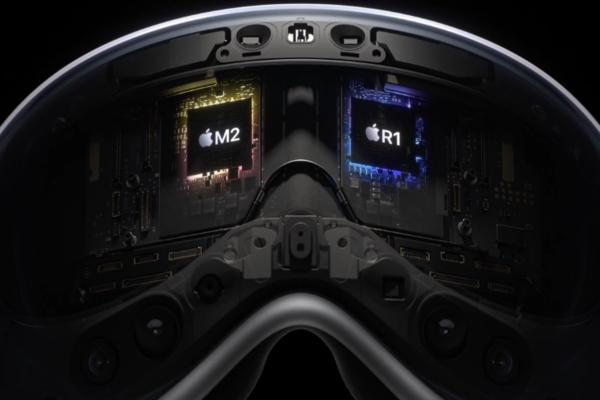Apple made a significant move in the competitive AI race during its WWDC event last week. The company showcased the role of AI in its upcoming hardware and software features. iOS 17, set to release later this year, will utilize computer vision to suggest recipes based on photos taken with an iPhone. Another AI-powered addition is Journal, an interactive diary that offers personalized suggestions based on activities across various apps. Additionally, iOS 17 will include an upgraded autocorrect system, fueled by an AI model that learns users’ frequently used words, including profanity.
Apple’s commitment to AI extends to its Vision Pro augmented reality headset, specifically FaceTime. Leveraging machine learning, the Vision Pro can generate a virtual avatar of the wearer, replicating facial expressions with intricate details like muscle movements and skin tension. With this move, Apple aims to dispel doubts about its AI capabilities, following previous underwhelming projects such as Siri and their struggling self-driving car venture.
In other AI-related news, Meta, not wanting to be outdone by Google, released MusicGen, an AI-powered music generator. Unlike Google, Meta has open-sourced this tool, which can convert text descriptions into short audio clips. The U.K. government announced plans to host a global AI safety summit, with OpenAI, Google DeepMind, and Anthropic committing to provide early or priority access to their AI models for evaluation and safety research. Salesforce launched AI Cloud, a suite of AI tools designed to enhance its position in the competitive AI space.
TechCrunch provided a hands-on review of Gen-2, Runway’s AI text-to-video generator. While the technology shows promise, it still has a long way to go before generating film-quality footage. Cohere, an enterprise-focused generative AI startup, secured $270 million in funding for its AI model ecosystem. OpenAI CEO Sam Altman confirmed that GPT-5 is not currently in development, addressing concerns about the rapid advancement of large language models.
Automattic, the company behind WordPress.com, introduced an AI assistant for WordPress, enhancing content management capabilities. Leaked images suggest that Instagram is developing an AI chatbot capable of answering questions and providing advice. These developments indicate a growing presence of AI across various industries and services.
Beyond these notable advancements, a report based on workshops conducted by a team across six national labs explored how AI may impact science and research in the coming years. Los Alamos researchers are advancing the field of memristors, an approach combining data storage and processing. Natural language processing played a crucial role in a report examining police interactions during traffic stops, aiming to identify patterns that predict escalation, especially with Black men.
EPFL introduced DeepBreath, a model trained on breathing recordings that can aid in early identification of respiratory conditions. Purdue researchers developed software that approximates hyperspectral imagery using smartphone cameras, allowing for health monitoring without specialized hardware. MIT conducted research to help AI avoid obstacles while maintaining stable flight paths, inching closer to autopilot capabilities. Disney Research showcased a powerful facial landmark detection network at CVPR, enabling continuous tracking of facial movements without the need for traditional motion capture dots.
These recent developments reflect the widespread adoption of AI across various sectors, signaling its transformative potential in enhancing our daily lives.
Related Posts





